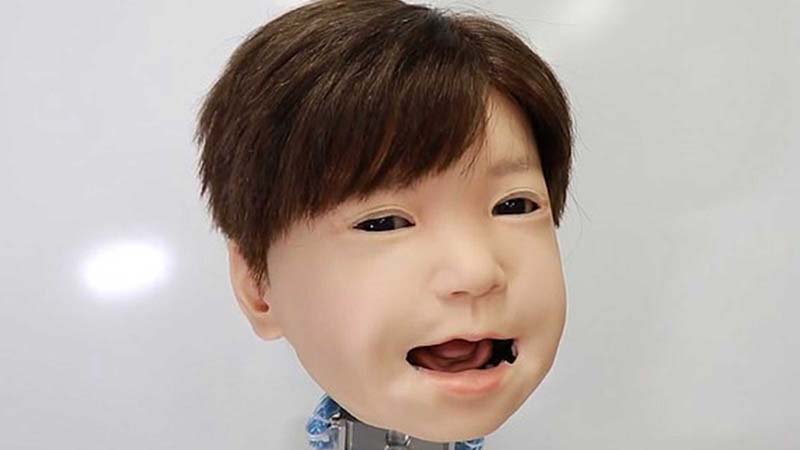From Westworld to Ex Machina, human-like robots are staple features in many science fiction blockbusters.
Now, humanoid robots are very much a reality, and are becoming more lifelike that ever.
Scientists from Osaka University in Japan have developed an eerily-realistic child robot that can ‘feel’ pain.
The robot, called Affetto, was first unveiled back in 2011, but the team has now incorporated synthetic skin, allowing the robot to detect changes in pressure.
The researchers, led by Minoru Asada, explained: “Engineers and material scientists have developed a new tactile sensor and attached it to a child robot called Affetto that has a realistic face and body skeleton covered in artificial ‘skin.’
“Affetto can discriminate soft and hard touches from the detected signals, and studies show that attaching skin sensors to Affetto helps it avoid ‘pain.’”
Affetto responds to touches with a variety of facial expressions, including smiling, frowning and grimacing.
Speaking in 2018, Hisashi Ishihara from Osaka University explained: “Android robot faces have persisted in being a black box problem: they have been implemented but have only been judged in vague and general terms.
“Our precise findings will let us effectively control android facial movements to introduce more nuanced expressions, such as smiling and frowning.”
While this might sound cruel, the researchers hope the robot will help humans to have deeper interactions with androids in the future.
Mr Asada added: “’Social’ robots are being programmed to show empathetic reactions to pain in others through a mirroring mechanism similar to that reported in humans.”

